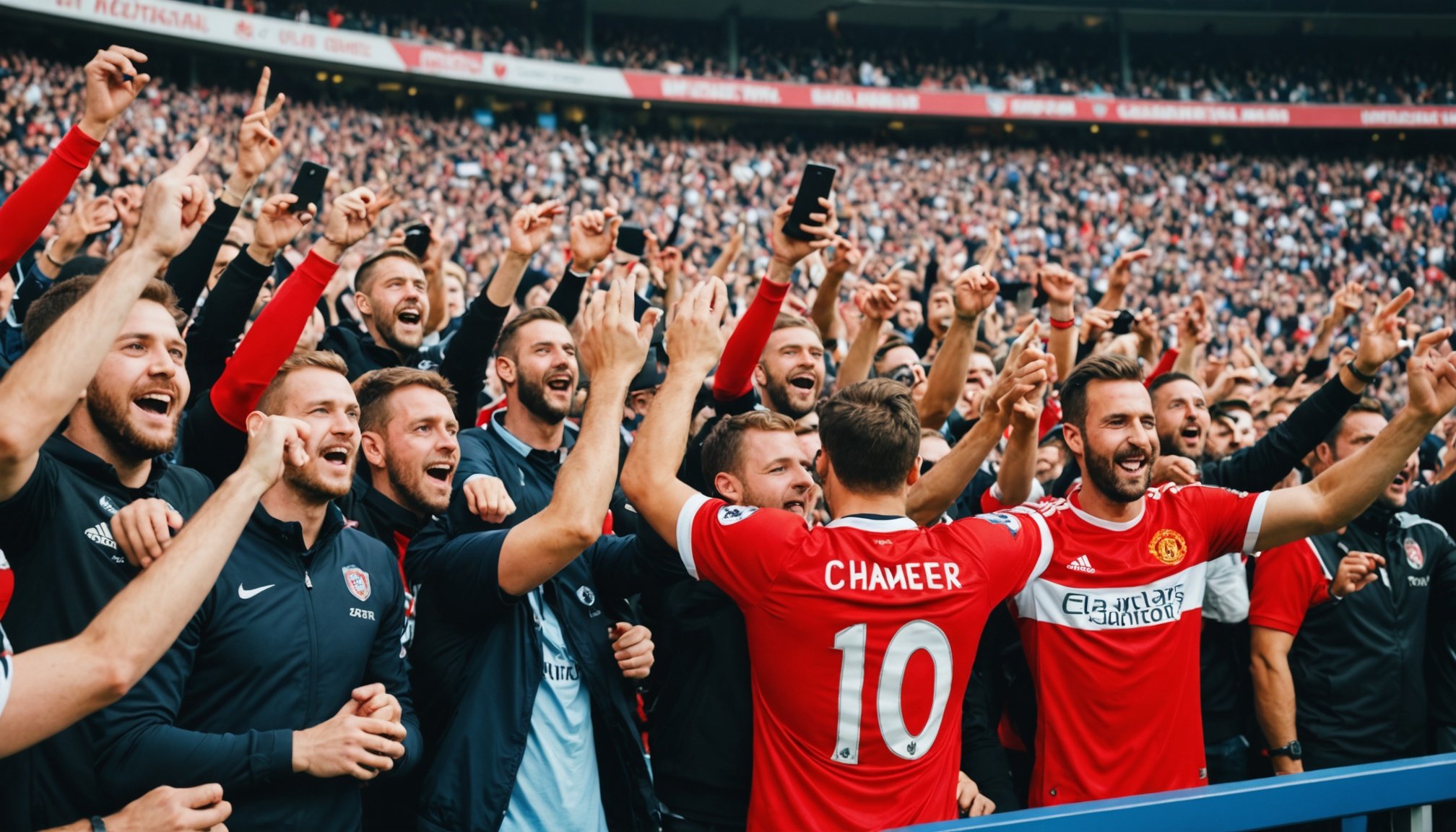Overview of CRM in Football Clubs
In today’s competitive landscape, CRM in sports, especially within football clubs, plays a vital role in fostering meaningful connections between the clubs and their fans. At its core, CRM (Customer Relationship Management) is a strategic approach aimed at enhancing fan loyalty and club engagement. By understanding and valuing each fan’s unique preferences, clubs can tailor experiences that deepen emotional ties and build long-term loyalty.
Typical goals of CRM strategies in football clubs include boosting match attendance, enhancing merchandise sales, and improving overall fan satisfaction. These objectives are often pursued through personalised communication and targeted marketing campaigns, ensuring fans feel valued and engaged.
In parallel : Enhancing player commitment: the impact of holistic mental health programs in football clubs
In recent years, there has been a notable shift in football club engagement tactics, with a growing emphasis on digital platforms. Innovative approaches such as virtual matchday experiences and interactive mobile apps have gained traction. These advancements allow clubs to engage fans in real-time, transcending geographical barriers and fostering a global fanbase.
The rise of social media has also transformed traditional fan-club dynamics. By leveraging these platforms, clubs can maintain constant engagement, providing real-time updates, behind-the-scenes content, and interactive polls that capture fans’ attention. As clubs continue to evolve with these trends, the successful implementation of CRM strategies will drive sustained fan enthusiasm and loyalty.
Also to discover : Strengthening athletic success: innovative approaches for football clubs to support players in overcoming the hurdles of professional sports
Case Studies of Successful CRM Strategies
In the world of sports, many clubs have found innovative ways to revolutionize their fan engagement strategies through creative CRM. Here are some notable case studies that highlight their success.
Club A’s Innovative Approach
Club A embraced a holistic CRM strategy by focusing on personalised fan experiences. Utilising data analytics, they tailored content and offers to individual preferences. This approach not only boosted fan loyalty but resulted in a remarkable increase in season ticket renewals, evidencing CRM’s potency in fostering long-term commitment.
Club B’s Digital Engagement Strategy
Among great CRM success stories, Club B stands out due to its pioneering use of digital platforms. By launching an engaging mobile app, fans were provided with real-time match updates, exclusive behind-the-scenes content, and interactive games. The app garnered a high download rate, underscoring the importance of integrating technology in CRM strategies for enhanced fan interaction.
Club C’s Personalized Fan Experiences
Club C implemented a robust system that facilitated personal experiences through CRM strategies by acknowledging fans’ unique milestones. By sending personalized birthday messages and rewards, they achieved a significant uptick in fan satisfaction and merchandise sales. This kind of strategy proves that slight personal touches resonate deeply with supporters, building a solid foundation for fan engagement.
Best Practices in Implementing CRM Strategies
For football clubs aiming to enhance fan loyalty, integrating CRM best practices is crucial. At the heart of implementing CRM in sports is understanding the fan data through rigorous analysis. Customer insights form the backbone of personalized fan experiences, making this a foundational step.
-
Develop a Comprehensive Strategy: A successful CRM approach begins with a well-defined plan. Clearly outline objectives tailored to your unique fan base. This sets the stage for impactful engagement.
-
Data-Driven Decision Making: Utilize advanced analytics to interpret fan preferences. Clubs should regularly review fan interactions and purchase habits, enabling them to tailor experiences and communications effectively.
-
Foster Collaboration: Successful CRM implementation relies on collaboration between marketing and fan engagement teams. This ensures that insights from data are effectively translated into creative CRM strategies.
-
Personalize Fan Engagement Efforts: Tailoring communications to individual fan preferences makes fans feel valued. This boosts engagement and builds stronger emotional connections.
By consistently applying these fan engagement tips, clubs can create more engaging and rewarding experiences for their supporters. Long-term success in CRM requires adaptability and a commitment to leveraging technology for continuous improvement.
Measuring the Impact of CRM on Fan Loyalty
Measuring fan loyalty in football clubs is essential to determine the effectiveness of CRM strategies. Key Performance Indicators (KPIs) such as attendance rates, merchandise sales, and digital engagement metrics provide valuable insights. These indicators help assess how CRM influences fans’ emotional connections with the club.
Key Performance Indicators (KPIs)
KPIs serve as quantifiable measures used to evaluate success. For instance, tracking the increase in season ticket renewals after personalized communication can reveal CRM’s impact.
Analyzing Fan Feedback and Surveys
Regular surveys and feedback collection offer direct insights into CRM effectiveness in sports. These tools enable clubs to understand fan sentiments and preferences, facilitating adjustments in strategies.
Long-term vs. Short-term Engagement Metrics
Balancing long-term and short-term metrics is crucial. While immediate increases in event participation are vital, sustaining fan loyalty over the years ensures stability. Metrics like engagement duration on digital platforms track both types of effects.
Employing comprehensive tools and methods, clubs can utilize case examples to harness data, refining strategies to maximize engagement and loyalty. By meticulously measuring these facets, clubs can connect meaningfully with fans, fostering enduring loyalty.
Creative Tactics for Enhancing Fan Engagement
In the world of sports, captivating fan engagement is key to successful CRM strategies. Football clubs are employing innovative tactics to connect with fans more effectively.
One effective method is the use of gamification to boost fan interaction. By integrating game-like features into apps or websites, clubs can create an immersive experience, inspiring fans to interact more actively with club content. This not only elevates engagement but also fosters a deeper emotional connection.
The rise of social media platforms has revolutionised real-time fan engagement. By leveraging these platforms, clubs can maintain constant interaction, providing live updates, exciting behind-the-scenes moments, and conducting interactive polls. Such approaches make fans feel part of the club’s journey and enhance overall fan loyalty.
Moreover, tailoring communications specifically to individual fan preferences enhances engagement efforts. Personalised messages, whether through email, app notifications, or social media interactions, make fans feel valued and understood. This personal touch strengthens their connection to the club, increasing long-term engagement.
These creative CRM strategies not only improve interaction but also engender enduring fan loyalty. In this competitive landscape, sports clubs that innovate in engaging their supporters are better positioned for sustained success.











